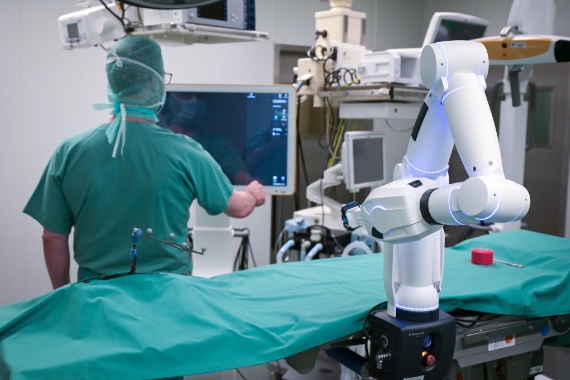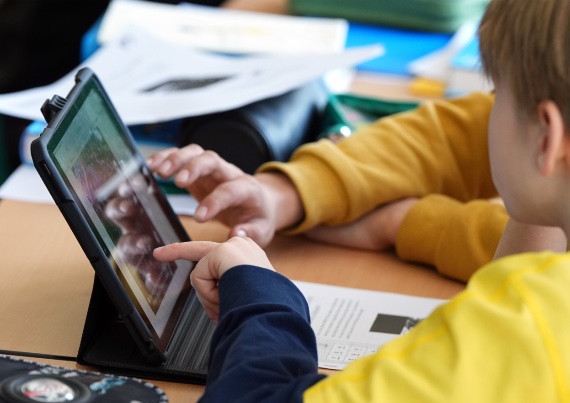Artificial Intelligence (AI) is a rapidly growing field that has the potential to revolutionize the way we work, learn, and interact with technology. The term AI refers to the ability of machines to perform tasks that would typically require human intelligence, such as decision-making, problem-solving, and natural language processing. As AI technology continues to advance, it is becoming increasingly integrated into various aspects of the workplace, from automating repetitive tasks to helping professionals make more informed decisions.
The impact of AI on the future of work is a topic of much discussion and debate. Some experts believe that AI will lead to the displacement of human workers, while others argue that it will create new opportunities and lead to increased productivity and economic growth. Regardless of the outcome, it is clear that AI will have a profound effect on the job market and the skills needed to succeed in the workforce.

In this context, it is crucial to understand the potential benefits and risks of AI in the workplace, as well as the ethical implications of using AI to make decisions that affect human lives. As AI continues to evolve, it is essential that individuals and organizations alike stay informed and adapt to the changing landscape of work.
AI is set to transform the future of work in a number of ways. Here are some possible angles:
- The Impact of AI on Jobs: One of the biggest questions surrounding AI and the future of work is what impact it will have on employment. Will AI create new jobs or displace existing ones? What types of jobs are most likely to be affected?
- The Role of AI in Workforce Development: As AI becomes more prevalent in the workplace, it’s likely that workers will need to develop new skills in order to keep up. How can companies and organizations help workers develop these skills?
- The Future of Collaboration Between Humans and AI: Many experts believe that the future of work will involve collaboration between humans and AI. What might this collaboration look like? How can companies and organizations foster effective collaboration between humans and AI?
- AI and Workforce Diversity: AI has the potential to reduce bias and increase diversity in the workplace. How can organizations leverage AI to improve workforce diversity?
- The Ethical Implications of AI in the Workplace: As AI becomes more prevalent in the workplace, there are a number of ethical considerations that need to be taken into account. How can companies and organizations ensure that their use of AI is ethical and responsible?
- AI and the Gig Economy: AI has the potential to transform the gig economy by making it easier for individuals to find work and for companies to find workers. How might AI impact the future of the gig economy?
- AI and Workplace Automation: AI is likely to automate many routine tasks in the workplace, freeing up workers to focus on higher-level tasks. What types of tasks are most likely to be automated, and how might this change the nature of work?
Advantages and disadvantages of AI in the context of the future of work:
Advantages:
- Increased Efficiency: AI can automate many routine tasks and workflows, freeing up workers to focus on higher-level tasks and increasing productivity.
- Improved Accuracy: AI systems can process large amounts of data quickly and accurately, reducing the risk of errors.
- Better Decision-Making: AI can analyze data and provide insights that humans may not be able to identify, leading to better decision-making.
- Cost Savings: By automating tasks and workflows, AI can reduce labor costs and improve the bottom line for businesses.
- Enhanced Customer Experience: AI-powered chatbots and other tools can provide fast, personalized service to customers, improving their overall experience with a company.
Disadvantages:
- Job Displacement: As mentioned earlier, AI and automation could displace many workers, particularly those in low-skill jobs.
- Skill Mismatch: As AI and automation become more prevalent, workers will need to develop new skills in order to remain competitive in the workforce.
- Bias and Discrimination: AI systems are only as unbiased as the data they are trained on, which could lead to discrimination in hiring, promotion, and other workplace practices.
- Ethical Concerns: As AI and automation become more prevalent, there are a number of ethical concerns that need to be addressed, including issues related to privacy, transparency, and accountability.
- Cybersecurity Risks: As more and more data is collected and processed by AI systems, there is a risk that this data could be compromised by cybercriminals.
- Loss of Human Interaction: AI systems may replace some forms of human interaction in the workplace, potentially leading to a loss of social connections and collaboration between workers.
- Uneven Access: As mentioned earlier, not all workers and organizations have equal access to AI and automation technology, which could widen the gap between those who have access to these tools and those who do not.
These are just a few of the advantages and disadvantages of AI and the future of work. As AI continues to evolve, it’s likely that new advantages and disadvantages will emerge as well.
In conclusion, the impact of AI on the future of work is a complex and multifaceted issue that requires careful consideration and planning. While AI has the potential to revolutionize the way we work and improve productivity, it also poses significant challenges, including job displacement and ethical concerns.

To prepare for the future of work, individuals and organizations must prioritize upskilling and reskilling to ensure that they have the skills and knowledge necessary to thrive in an AI-driven world. Additionally, policymakers must address the potential impacts of AI on employment and work towards creating policies that ensure the benefits of AI are shared equitably.
Ultimately, the successful integration of AI into the workplace will require collaboration and dialogue between industry, academia, and government to ensure that AI is used in a way that benefits society as a whole. By staying informed and proactive, we can navigate the changes brought about by AI and create a future of work that is both efficient and equitable.
Ahmed Banafa, Author the Books:
Secure and Smart Internet of Things (IoT) Using Blockchain and AI
Comments on this publication